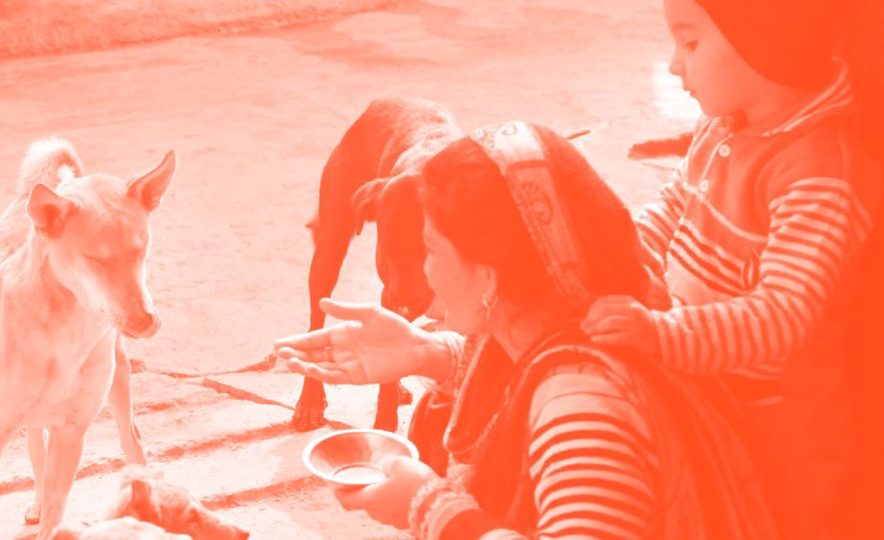
26 September 2022 (Singapore) – On 26 November 2021, the Animal and Veterinary Service (AVS), a cluster of the National Parks Board (NParks) of Singapore, opened the new Animal Quarantine Centre (AQC), which plays an integral role in the biosurveillance of diseases and prevention of rabies incursion via imported dogs and cats. Given the risk of disease incursion, Singapore institutes strict import control and quarantine measures, and a biosurveillance and biosecurity system has helped to maintain Singapore as rabies-free for nearly 70 years since 1953.
Rabies is a vaccine-preventable disease, and the World Organisation for Animal Health (WOAH, founded as OIE), of which Singapore is a member, promotes dog vaccination as the most cost-effective strategy for preventing dog-mediated rabies in humans, whilst ensuring strict preventative measures are in place.
Teams of veterinarians and animal health inspectors stationed at AQC monitor the health and well-being of animals
AVS employs a risk categorisation system in allowing the import of dogs and cats into Singapore to safeguard public and animal health, especially against rabies. Exporting countries are assessed and categorised into groups, based on the level of risk of rabies within their local animal populations. Depending on the country of origin, animals may be quarantined at the AQC where they are cared for and monitored daily for signs of disease for a specified amount of time. If the animals come from countries or regions free from rabies, quarantine is not required.
CCTV are fitted so that staff can monitor animals and detect signs of illnesses expeditiously
The new centre deploys remote sensors such as closed-circuit televisions (CCTVs) to remotely monitor animals under quarantine for any signs of disease such as rabies and allows AVS to respond to any potential disease outbreaks quickly, as well as carry out contact tracing efficiently.
The Centre offers kennels and catteries
Kennels and catteries can be air-conditioned or fan-ventilated
Smart collar tags to ensure animals remain within quarantine premises. The collars will trigger an alert should the animals leave the premises.
Smart collar tags for home quarantine of imported dogs and cats
Singapore has employed the use of smart collar tags for animals from low-risk countries which are eligible for home quarantine, making the country one of the first to follow this practice. Some animals, such as those with pre-existing medical conditions that require round-the-clock care by their owners, can serve their post-arrival quarantine at home. The smart collar tags are based on radiofrequency technology and trigger alerts when quarantine animals leave the home premises. This enhances owner compliance to home quarantine rules, reducing disease exposure risk, and allows for more pets with medical needs to serve quarantine at home without compromising biosecurity and public health.
Pet ownership rose during the COVID-19 pandemic, observed from the steady increase in the importation of dogs and cats, and number of licensed dogs. It is important to continue ensuring Singapore’s biosurveillance and biosecurity strategy remains effective in preventing exotic diseases from entering through the import of animals, including pet dogs and cats.
This article is part of a series published for activities for World Rabies Day 2022, to share challenges and successes in controlling the disease. With a fatality rate of almost 100% in humans and animals alike, rabies remains a global threat, killing approximately 59,000 people every year.
WOAH has long been committed to tackle the disease, supporting its Members in the path towards a rabies-free future. Dog-mediated rabies is set for elimination by 2030. With this goal in mind, WOAH strives to coordinate intersectoral action at a global level and to accompany countries in the development and implementation of their national rabies strategies.
All photo credit: National Parks Board (NParks), Singapore







